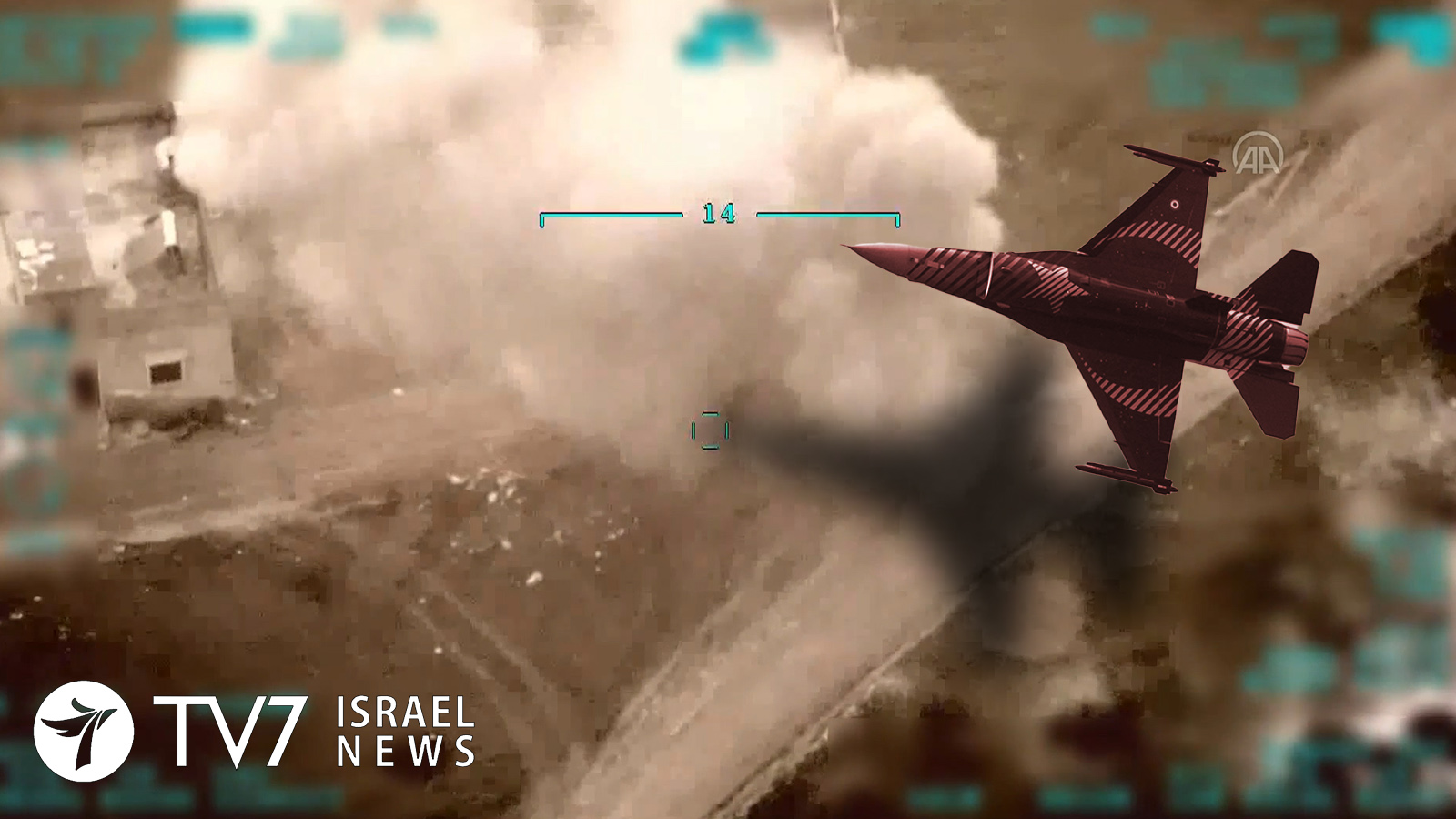Syria’s northwestern Idlib region is the site of extensive warfare, as the Turkish military advances Operation Spring Shield to push back troops loyal to Syrian President Bashar al-Assad. Ankara is backed by Jihadist Sunni-Muslim militias while Damascus is being supported by Shi’ite-Muslim Iranian proxies with Russian aerial support.
Turkish Defense Ministry official, Col. Olcay Denizer, detailed claims that “Since the start of Operation Spring Shield, 3 airplanes, 8 helicopters, 3 drones, 151 tanks, 47 howitzers 52 multiple-launch rocket system, 8 air defense systems, 12 anti-tanks, 24 armored vehicles, 27 armored combat vehicles, 34 armored pick-ups 60 military vehicles and ten ammunition stores were destroyed. A total of 3,136 Assad regime elements were neutralized.”
The Turkish gains were not attained without loss, in combat against Syrian forces committed to their own operational goal of devastating the invading Turks and their allies. According to Col. Denizer, immediately after the killing of two Turkish soldiers and wounding of six others, the area from which they were targeted was “covered with fire” and “are continuing to be struck.”
Regardless of Syrian resolve to recapture all lost territory, Turkish Defense Minister Hulusi Akar defiantly declared no end in sight to his country’s military activities in Syria, saying “We strive for peace there” and “Our soldiers are fulfilling their duties with heroism.”
While Ankara is determined to expel the Syrian army and its allies from a territorial corridor in the Idlib Governorate, it is concerned some one million residents in the area might flee north in attempts to join 3.7 million other refugees and illegal migrants already housed in Turkey.
The Syrian army does not pose a significant challenge to Turkey’s military power, although Russia’s steadfast support for the Assad regime does present an obstacle to realization of Ankara’s strategies. Turkish President Recep Tayyip Erdogan is hoping to persuade Russian President Vladimir Putin to negotiate a viable and acceptable ceasefire when the two leaders hold talks in Moscow later this week.
Putin has been cited by Russian media as saying, “We are not going to fight against anyone. We are going to create conditions so that nobody wants to fight against us.”
Russia also reacted to Turkey’s bid to force increased funding from Europe to cope with the migrant crisis by reopening its eastern border with Greece, and encouraging an exodus numbering hundreds of thousands. Russian Foreign Minister Sergei Lavrov emphasized that while “We fully understand what difficulties the problem of migrants creates for the European Union,” the Kremlin “cannot assist in solving migration problems at the expense of the fight against terrorism -which is being suggested by some politicians in Europe.” Lavrov did say that the dialogue between the Russian Federation and the European External Action Service will continue in efforts to find a solution to the “problem.”
In seeking to reassure Athens, European Commission President Ursula Von Der Leyen stated that the border crisis is not only a “Greek issue” but rather “the responsibility of Europe as a whole.” Von Der Leyen said “ we will manage it in an orderly way, with unity, solidarity and determination,” and that “Those who seek to test Europe’s unity will be disappointed.” After adding that “Now is the time for concerted action and cool heads, and acting based on our values,” she cautioned that “Turkey is not an enemy, and people are not just means to reach a goal.”
Greek Prime Minister Kyriakos Mitsotakis did not mince words, however, proclaiming that “Turkey is in full breach of the EU – Turkey statement, has systematically encouraged and assisted tens of thousands of refugees and migrants to illegally enter Greece.” Mitsotakis then charged that the current crisis is “no longer a refugee problem” but “a blatant attempt by Turkey to use desperate people to promote its geopolitical agenda and to divert attention from the horrible situation in Syria.”
“The tens of thousands of people who tried to enter Greece over the past few days did not come from Idlib,” pointed out the Greek leader, insisting that “they have been living safely in Turkey, for a long period of time. Most of them speak Turkish fluently, and Europe will not be blackmailed by Turkey over the refugee issue.” After stating that “We stand ready to support Turkey in dealing with its refugee problem, and find a solution to the Syria conundrum,” Mitsotakis stressed no such assistance would be forthcoming “under these circumstances.”
Meanwhile on the Hatay border between Turkey and Syria, US Special Representative for Syria James Jeffrey revealed that Washington is willing to provide NATO-ally Ankara with ammunition for its Syrian operation and humanitarian assistance for the migrants. “Turkey is a major purchaser of American weapon system,” said the Syria envoy, clarifying that, “As the President (Donald Trump) said recently, we will provide supplies and other things to Turkey.” Jeffrey also revealed that the White House is “looking at other requests that Turkey has made either to us or to NATO as this conflict goes on.”
